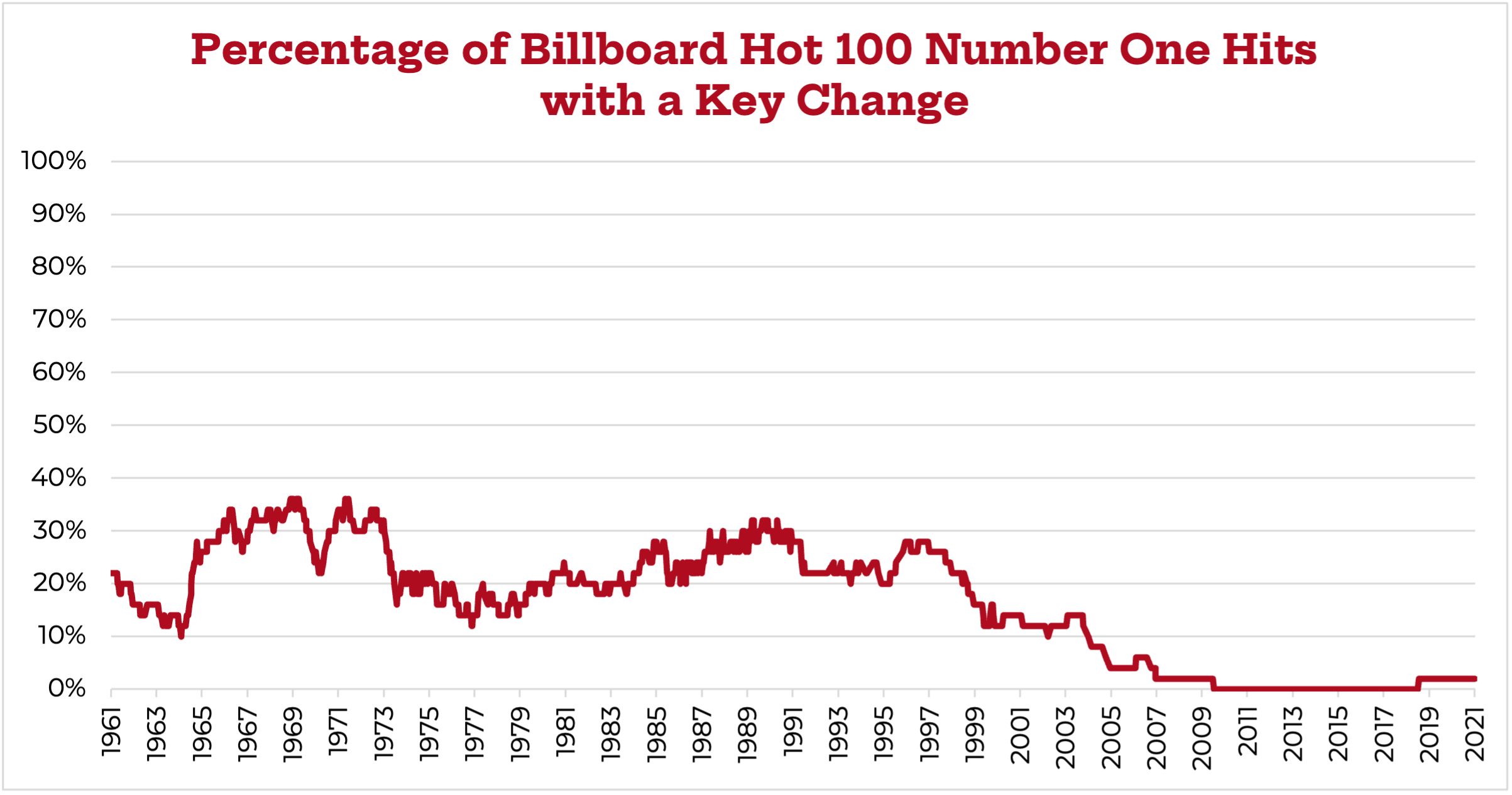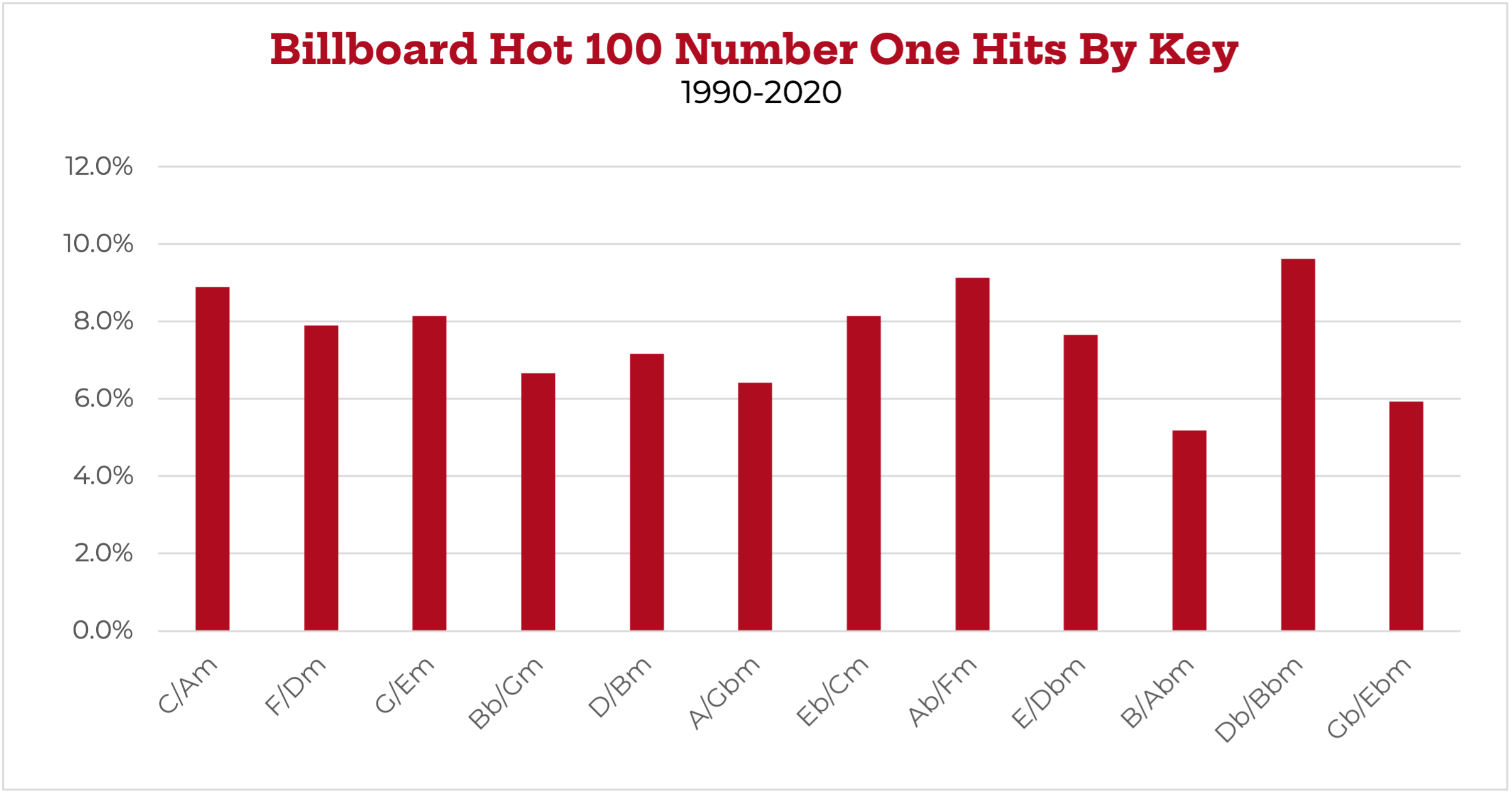The act of shifting a song’s key up either a half step or a whole step (i.e. one or two notes on the keyboard) near the end of the song, was the most popular key change for decades. In fact, 52 percent of key changes found in number one hits between 1958 and 1990 employ this change. You can hear it on “My Girl,” “I Wanna Dance With Somebody,” and “Livin’ on a Prayer,” among many others.

What’s odd is that after 1990, key changes are employed much less frequently, if at all, in number one hits.

What’s doubly odd is that around the same time, the keys that number one hits are in change dramatically too. In fact, songwriters begin using all keys at comparable rates.
The two factors that changed the key of pop music forever
So what is going on? Both of the shifts can be tied back to two things: the rise of hip-hop and the growing popularity of digital music production, or recording on computers. First, let’s talk about hip-hop.
Though hip-hop grew in popularity throughout the 1980s, it didn’t become the cultural zeitgeist until the 1990s. Hip-hop stands in stark contrast to nearly all genres that came before because it puts more emphasis on rhythm and lyricism over melody and harmony. For example, while you might be able to tap out the percussion or recite some lyrics from “Juicy” by Biggie Smalls, you would likely not be able to hum the melody. That’s because the song doesn’t have a melody in the same way that something like “Over the Rainbow” by Judy Garland does.
Thus, if you changed the key of “Juicy,” Biggie wouldn’t necessarily have to change how he raps, but if you changed the key of “Over the Rainbow,” Judy Garland would have to sing different pitches. If you picked the wrong key, those pitches might be outside of her vocal range. In short, key doesn’t matter as much in hip-hop.
As hip-hop grew in popularity, the use of computers in recording also exploded too. Whereas the guitar and piano lend themselves to certain keys, the computer is key-agnostic. If I record a song in the key of C major into digital recording software, like Logic or ProTools, and then decide I don’t like that key, I don’t have to play it again in that new key. I can just use my software to shift it into that different key. I’m no longer constrained by my instrument.